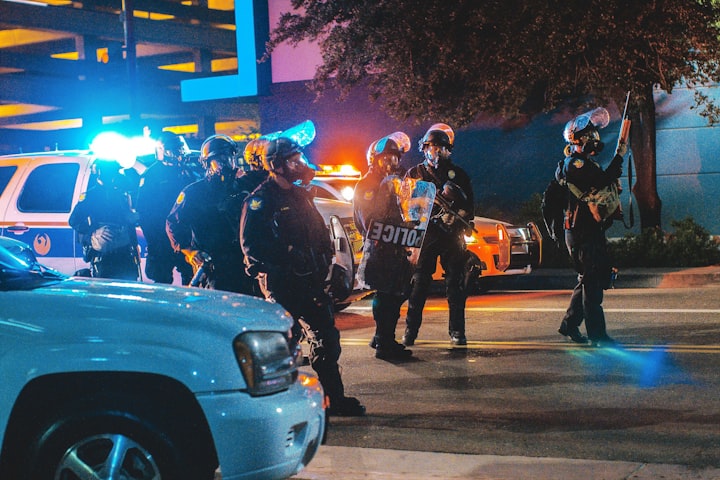The Unfolding of a Police Story: Exploring the Challenges, Responsibilities, and Evolving Role of Law Enforcement
A Glimpse into the Complexities, Sacrifices, and Transformation of Modern Policing

Police stories have captivated audiences for decades, shedding light on the intricacies of law enforcement, the courage of those who serve, and the complexities they face in maintaining peace and order. In this essay, we delve into the world of policing, exploring the challenges, responsibilities, and the evolving role of law enforcement in society.
Understanding Law Enforcement
Protecting Public Safety: The primary objective of law enforcement is to protect public safety and maintain law and order within a given jurisdiction. Police officers are entrusted with the responsibility of enforcing laws, preventing crime, and responding to emergencies to ensure the well-being of the community.
Crime Prevention and Investigation: Law enforcement agencies employ various strategies to prevent criminal activities, including proactive patrols, community engagement, and intelligence gathering. Additionally, police officers investigate crimes, gather evidence, and collaborate with other agencies to bring offenders to justice.
The Challenges of Policing
Public Trust and Accountability: Building and maintaining public trust is crucial for effective policing. Instances of police misconduct, excessive force, and biased practices have eroded trust between law enforcement and communities. Promoting transparency, accountability, and fostering positive community relations are ongoing challenges for police departments.
Balancing Public Safety and Civil Liberties: Police officers must navigate the delicate balance between ensuring public safety and respecting individual civil liberties. Upholding constitutional rights, such as freedom of speech and protection against unreasonable searches, while preventing crime poses complex challenges for law enforcement agencies.
Dealing with Mental Health and Crisis Situations: Police officers often find themselves on the front lines when responding to individuals in mental health crises. Lack of adequate mental health resources, training, and diversion programs can place a significant burden on law enforcement, requiring them to handle situations beyond their traditional role.
The Evolving Role of Law Enforcement
Community Policing: Community policing emphasizes collaboration between law enforcement agencies and the communities they serve. It involves building relationships, engaging with residents, and jointly addressing local issues to create safer and more cohesive neighborhoods.
Use of Technology: Technological advancements have transformed policing, enhancing efficiency, data-driven decision-making, and public safety. Tools such as body cameras, predictive analytics, and real-time crime mapping have become integral in modern law enforcement practices.
Diversity and Inclusion: Police departments recognize the importance of diversity and inclusion within their ranks to better reflect the communities they serve. Efforts are being made to recruit officers from diverse backgrounds, provide cultural competency training, and promote unbiased policing practices.
Training and Education: Continuous training and professional development are essential for police officers to adapt to evolving challenges. Training programs focus on de-escalation techniques, crisis intervention, implicit bias recognition, and cultural sensitivity, equipping officers with the necessary skills to serve their communities effectively.
Policing in the Digital Age: The digital age has presented new challenges and opportunities for law enforcement. Cybercrime, online harassment, and data privacy concerns have become areas of focus for police agencies, requiring specialized knowledge and collaboration with technology experts.
The Human Side of Policing
Sacrifices and Emotional Toll: Policing can take a toll on officers' mental health and well-being. The exposure to trauma, long hours, and the constant pressure to make split-second decisions can lead to stress, post-traumatic stress disorder (PTSD), and other psychological challenges. Support systems and mental health resources are critical for officers' well-being.
Acts of Heroism and Compassion: Police stories often highlight acts of heroism and compassion demonstrated by officers in the line of duty.





Comments
Peter Kaan is not accepting comments at the moment
Want to show your support? Send them a one-off tip.